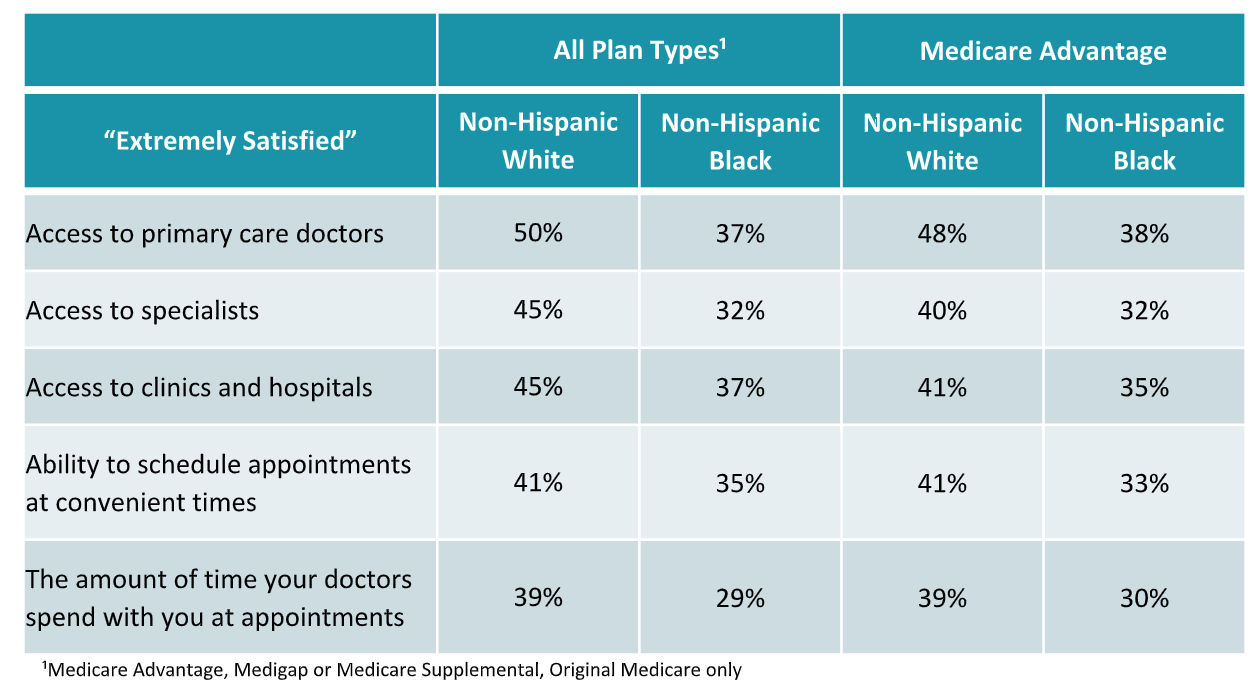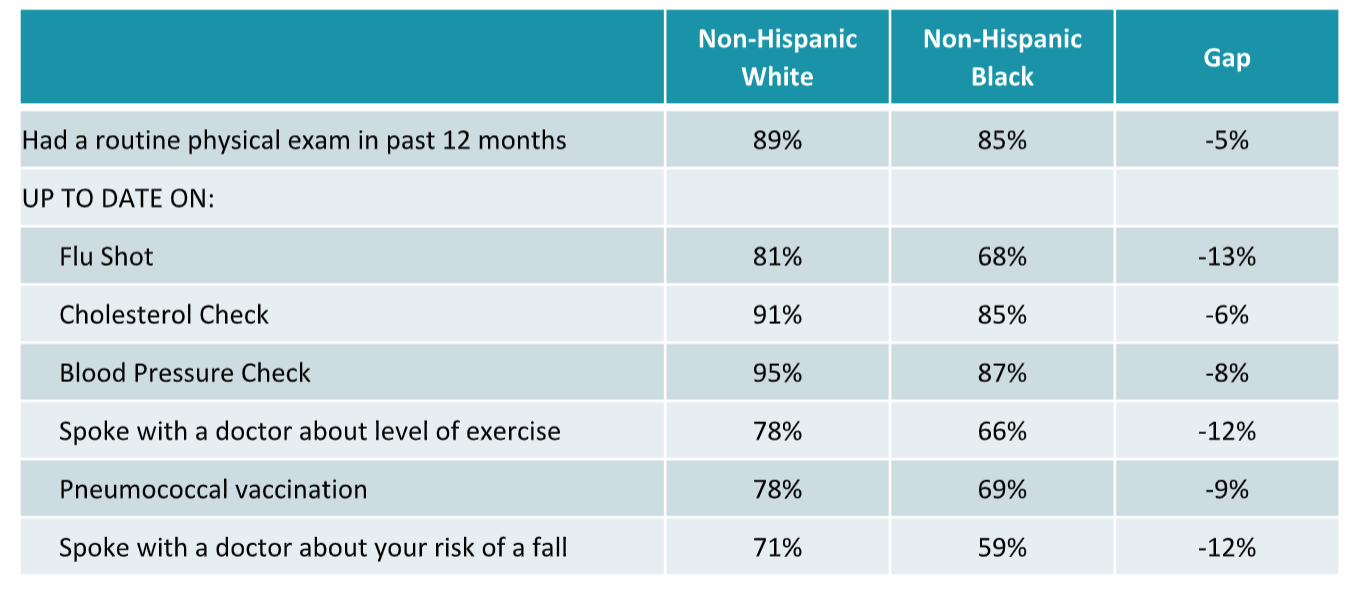Deft wanted to take a special look at Black seniors’ access and experience with health care and health insurance. We analyzed data from Deft’s 2021 Medicare Shopping and Switching Study and the 2020 and 2021 Medicare Member Experience studies for this analysis.
In terms of health insurance, Black seniors are more likely to have Medicare Advantage or Original Medicare only than non-Hispanic Whites (NHWs). For those in Medicare Advantage, Black seniors are more likely to be enrolled in an HMO plan than NHWs.
Less Shopping, More Auto-enrolling. In 2021, 28% of Black seniors (in all plan types) said they thought about or shopped for health insurance. This is significantly lower than the 42% of NHWs who said the same. Only about one-in-four Black seniors are “extremely confident” they enrolled in the right Medicare plan, compared to 35% of NHWs.
Access to Care. When analyzing the data, one trend surfaced quickly- Black seniors report less satisfaction with their access to health care than their NHW counterparts. This holds true even when comparing only Medicare Advantage members. Dissatisfaction is triggered by many experiences including the amount of time the doctor spends with them and access to hospitals.

Access problems seem to lead to less preventative care. While most seniors report having a primary doctor, Black seniors are less likely than NHWs to have one (93% vs. 96%). On many basic measures of care that are normally associated with regular doctor visits, Black seniors lag behind NHWs on being up to date with their flu shots, cholesterol checks and blood pressure checks, as well as having risk conversations with their doctors.
The gaps in care are noteworthy as there is only a 5% gap between Black and NHW seniors reporting a physical exam in the past year, but the doctor communication gap is more than twice that amount (12%). It is risky to leap to a conclusion, but this raises the hypothesis that the volume and content of communication during a physical exam may be less for Black seniors than it is for Whites. Other research has supported this in the past.

We also found that both Black and White seniors with original Medicare only are less likely to obtain annual preventative care. This may highlight the positive role of the insurer as a promoter of care such as flu shots and physicals, and of accessing care generally.
Dental Care Disparity. Beyond medical care, there is also a disparity in dental care. 56% of Black seniors say they are up to date with their dental exam (compared to 77% of NHW seniors). Not surprisingly, this lack of dental care leads to higher rates of dental pain (8% vs. 4%). Also, 29% of Black seniors report other dental issues besides pain vs. 14% of NHWs.
Conclusion
HMO plans (which Black Medicare Advantage members are more likely to be enrolled in) inherently have a smaller network of doctors to access. Most Black seniors (68%) do say they are fine with the thought of their plan having a network, as long as they can see doctors that they need. However, their lower satisfaction with doctor and facility access suggests that, in some cases, their current plan is not meeting their needs. While not the only solution needed, carriers need to focus more on both understanding the needs of the Black senior and communicating that understanding in their marketing campaigns.